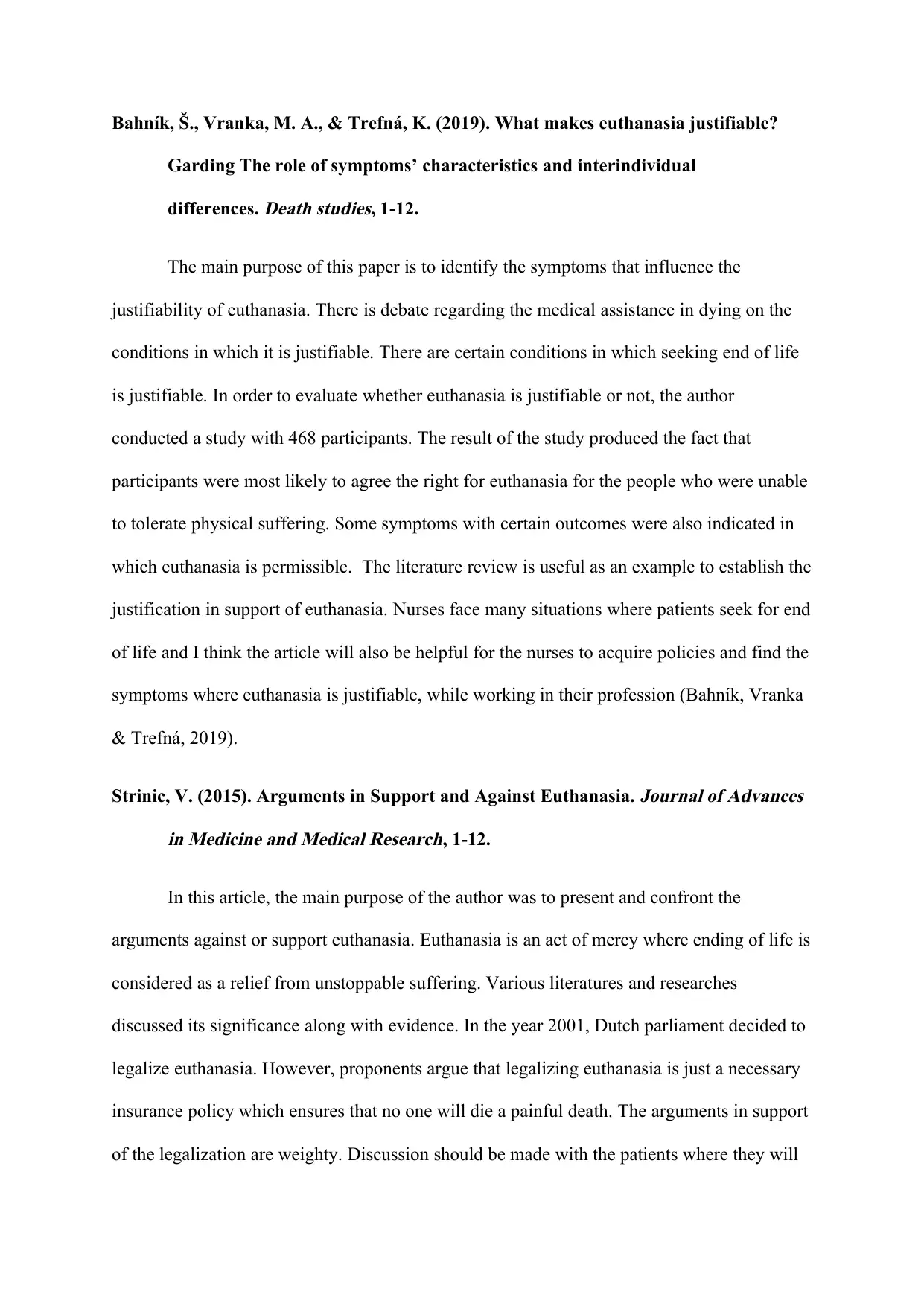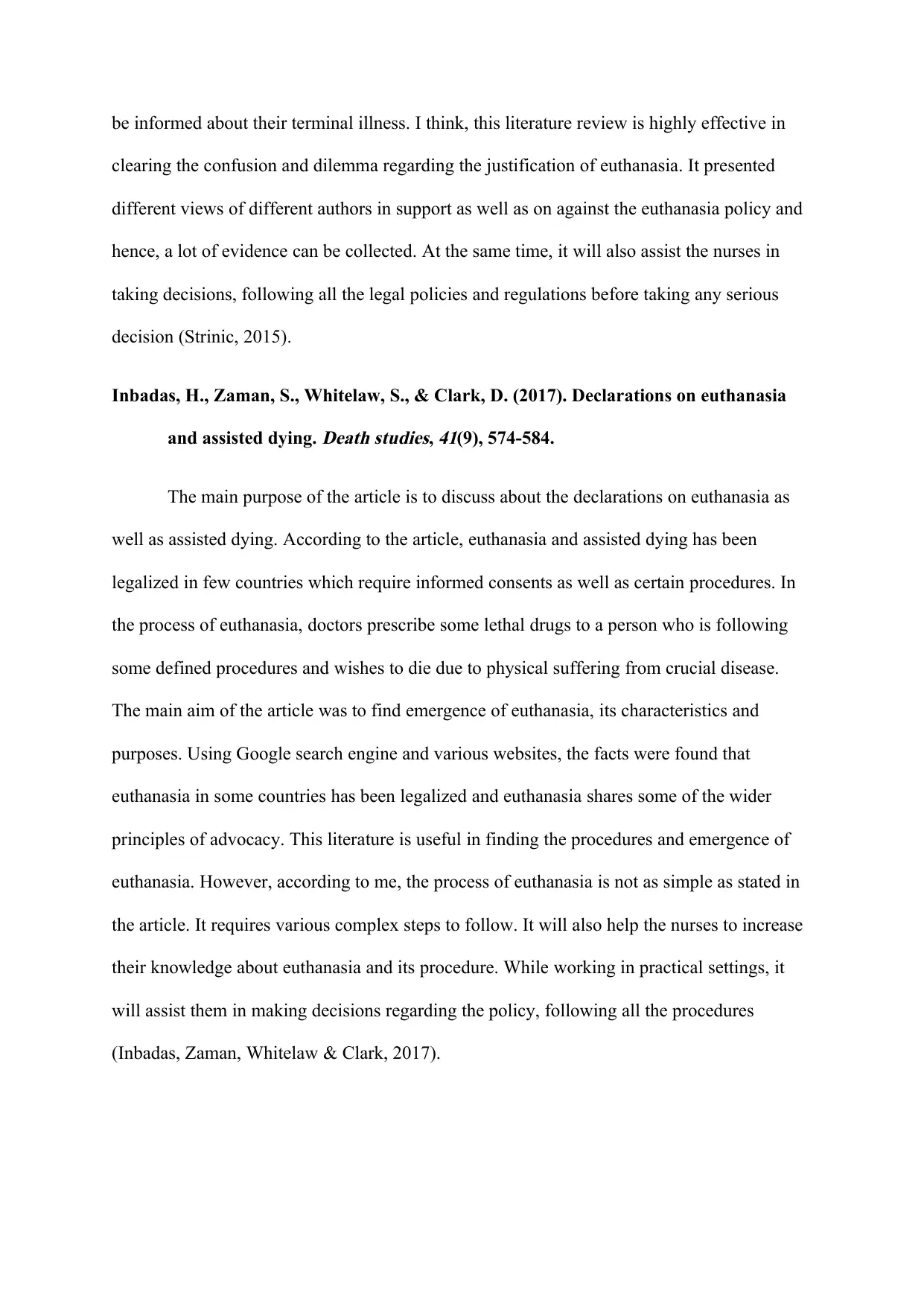NURBN1005 Semester 2: Annotated Bibliography on Euthanasia
VerifiedAdded on 2022/09/16
|2
|693
|21
Annotated Bibliography
AI Summary
This annotated bibliography examines the complex and sensitive topic of euthanasia, focusing on its ethical, legal, and practical implications for the nursing profession. The bibliography includes three peer-reviewed articles. The first article, by Bahník, Š., Vranka, M. A., & Trefná, K. (2019), investigates the symptoms influencing the justifiability of euthanasia, providing insights into patient suffering and the role of nurses in end-of-life care. The second article, by Strinic, V. (2015), presents arguments both for and against euthanasia, offering a balanced perspective on its legalization and ethical considerations. The third article, by Inbadas, H., Zaman, S., Whitelaw, S., & Clark, D. (2017), discusses declarations on euthanasia and assisted dying, exploring the procedures and characteristics of euthanasia in different countries. Each entry includes full citation information, the authors' purpose, a summary of the content, a comment on its usefulness for a literature review, and a reflection on its broader relevance to the nursing profession. The bibliography aims to provide a comprehensive overview of the topic, assisting nurses in making informed decisions and understanding the complexities surrounding euthanasia.
1 out of 2








![[object Object]](/_next/static/media/star-bottom.7253800d.svg)